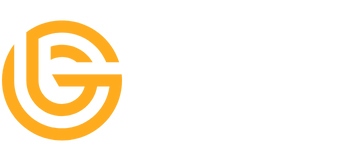Mastering poker is a lifelong journey that is never really complete. Poker is an incredibly competitive game, and like anything else in life, success comes to those who are willing to work hard to beat the competition.
Winning money at poker comes in due time for those who work hard to get better, but do so for other reasons than just making money. Above all, they have a deep passion for the game and they want to get better because they want to be good at what they do. The money is just the icing on the cake.
If you don’t improve, you will eventually fall behind the competition. Sure, you might be able to crush some weekend players, but so can the other regulars. And the games are getting harder.
This article will give you 5 ways to take your game to the next level . Let’s look at the actual tips, starting with the basics.
1. Learn the basics of the game.
The basics of poker are not difficult to learn and the math part is not very difficult either. But that’s the easy part. You should start building your strategy by learning the basic TAG (tight and aggressive) strategy. This includes mastering starting hand selection before the flop.
About the top 15% of hands in a full ring game and the top 20% in a max 6 game, playing hard in early position and opening in late position (cut and button), playing in position (being the last to act) and play fast and aggressive post flop in most situations.
As for the math part, you don’t need more than basic multiplication and division. You should be familiar with pot odds, implied odds, and stack-to-pot ratios (SPR).
Although you may feel like you have the basics, it’s best to assume you don’t have it all figured out. Being familiar with something and understanding it deeply are not the same thing.
2. Try to focus on one thing at a time
Poker is a game that takes an hour to learn, but a lifetime to master. Therefore, there is no need to rush or learn everything at once. Slow and steady is the way to go, especially when it comes to learning and improving. It can be a long and tedious process, but knowledge is difficult.
So, in order not to make it more difficult than necessary, you should avoid overwhelming yourself, especially at first.
A great way to go about this might be focus sessions. Before you open up your software and sit down to play, you can start with a pre-game warmup. During the warm up, you study the concept you’re trying to implement in your game.
Then, during the session, you look for opportunities in which you can apply the concept. You might be surprised how many profitable spots there are where you know where and what to look for. Then keep repeating that until you do it automatically.
3. Consiga un software HUD (Heads-up Display)
The best investment you can make in your poker career is to buy HUD software (Holdem Manager, PokerTracker…). It is an irreplaceable tool to track your hands and results and it also keeps track of your opponents stats.
Basically, it pays for itself, because the reads you’ll be able to get from your opponents will more than make up for the price of the software itself.
But HUD aside, the real value of the software is that it helps you study and take your game to the next level. It automatically saves all your hand histories and shows you your results in a clear and complete way.
4. Check your hands
The most profitable way to learn is to learn from other people’s mistakes. And what better way to do that than with hand history review. What makes this exercise so effective is the fact that you’re not just passively absorbing information, as is the case with reading articles and watching videos, for example.
Not that there’s anything wrong with articles and videos, but it’s just part of the learning process. It’s also about applying what you’ve learned.
When you check your hands off the felt, you force yourself to think and ask questions, and that’s where true understanding comes from. The best hands to review are the ones that went to showdown, because you can not only study the lines you took, but also try to estimate your opponents range and narrow it down street by street. That way you are basically studying several things at once.
As you check your hands, talk to yourself out loud and repeat any information you have to yourself. This forces you to apply what you already know and highlight areas where you might be struggling.
5. Play more
Poker is a game of skill. Like any other skill, it improves with practice. Taking the time to study and improve felting is invaluable, but at the end of the day, you need to bring that knowledge to felting.
Theory without practice is empty and practice without theory is blind. You can play poker all day every day without even reading a single article and you will be a fish forever.
There must be a balance between the two. Most people would benefit from studying more (because let’s face it, no one likes to study and we all love to play), but there’s a lot you can learn in theory. Putting it into practice effectively is where real knowledge comes from.
Progress takes time, but the more you do it, the better you’ll get. Action is the best teacher and there is no better way to learn than through direct experience.
So get out there and practice. But I practiced consciously and deliberately. You won’t see any progress from day to day, week to week, or even month to month, but when you look back, you’ll be amazed at how far you’ve come.

